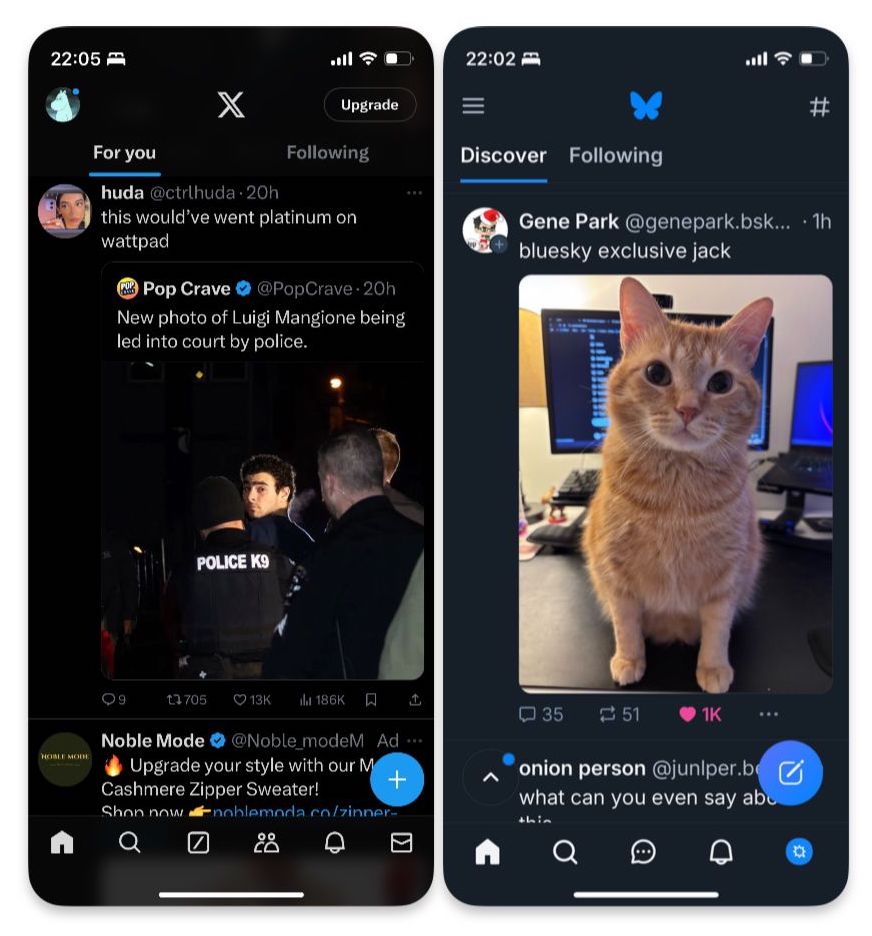Twitter is arguably one of my most used social media platforms. I was, sometimes still am, an avid user and would tweet every little thing that I found worth tweeting. However, my attachment to Twitter has changed drastically since Elon Musk bought the company. Now Twitter, also known as X (which for the sake of the blog, I will be referring to the platform as) has been under scrutiny for its newer features implemented by Musk. Recently, X announced that people you block on Twitter will still be allowed to view your posts though they cannot interact with them.1 Before this, X had also made questionable changes that made a lot of its users frustrated with the app and this resulted in some users leaving the platform to a newer application called Bluesky.
A Brief History of Bluesky
Bluesky was initially a project developed by Twitter’s former co-founder, Jack Dorsey. His idea was to make Twitter an open and decentralized standard for social media that would give users more control over their data and experience.2 The initiative ultimately fell through because of Twitter’s existing framework and design that weren’t able to concede with Dorsey’s idea of a decentralized network. Eventually, (though not entirely related) Dorsey left Twitter and moved on to different ideas, which allowed him the time to flesh out his previous idea of a decentralized social media, hence the shift to create a new platform called Bluesky.3
Assessing Bluesky
After learning more about Bluesky, I decided to give it a go. I immediately noticed the similarity of both platforms’ User Interface; the layout and color scheme are almost identical. It felt like I was navigating ‘old’ Twitter filled with different handles. The main difference is that when you first start making your account, Bluesky lets you ‘choose’ your algorithm; you can suggest what you like, and also control your data and online experience. Other than that, I felt like it functions exactly like Twitter.

The app is relatively new and currently has 24 million users, thanks to the sudden spike in downloads after the 2024 US election.4 With Musk’s new policy and misinformation that is still widely spread in X, I wouldn’t be surprised if more users started to migrate to Bluesky. However, for now, none of my close mutuals were migrating to Bluesky, so after a few weeks of joining, I still couldn’t fully let go of X.
Further Thoughts
I suppose that Bluesky’s vision can change our view of what it means to use social media, especially in handling our data and experience. Yet, I doubt the general public would care much about the vision itself; with all the changes that were made, people are, for whatever reason, still staying with X. Some for the sake of old community, nostalgia, or even to find new ways to monetize their posts. Kind of like your friend and their toxic ex, it’s hard to leave something you have been so familiar with, even if that move is to something better. Nevertheless, I will still keep tabs on Bluesky’s further development. Will it become the ‘better’ Twitter? or will it stay insignificant throughout its run?


Your comparison of Bluesky to the “old Twitter” is fascinating—it’s like a time machine wrapped in a new philosophy. But can nostalgia and user control really outweigh the sheer inertia that X has built over years? It seems like people are torn between staying on a crumbling empire or moving to a cleaner slate, but that emotional attachment to chaos is hard to break. Maybe Bluesky’s fate depends less on its features and more on whether users are ready to leave their toxic “planet” behind.
The whole Bluesky migration situation is interesting to see. It seems to me like we will end up with a situation where Bluesky is the new twitter and X is like twitter but for the far right. Hopefully we’ll end up with a less toxic platform as a result.
I certainly noticed an even bigger shift recently, when the new AI changes were made to X’s ToS. A lot of artists and mutuals I know are moving because of this. I can’t help but feel like this is a trend that might happen to other social media sites as they become increasingly less easy to navigate, and more greedy in regards to data. Furthermore, the part about returning to ‘old Twitter’ makes me think of how a lot of older social media sites or older aspects of these sights have been changed in order to innovate seemingly for the sake of innovation. In removing or changing these features, the quality of life has decreased significantly. At some point, it’s inevitable that the guality of life decreases past a thershold that creates an exodus of users. Perhpas in Twitter’s case, Elon Musk’s acquisition only hastened the process.